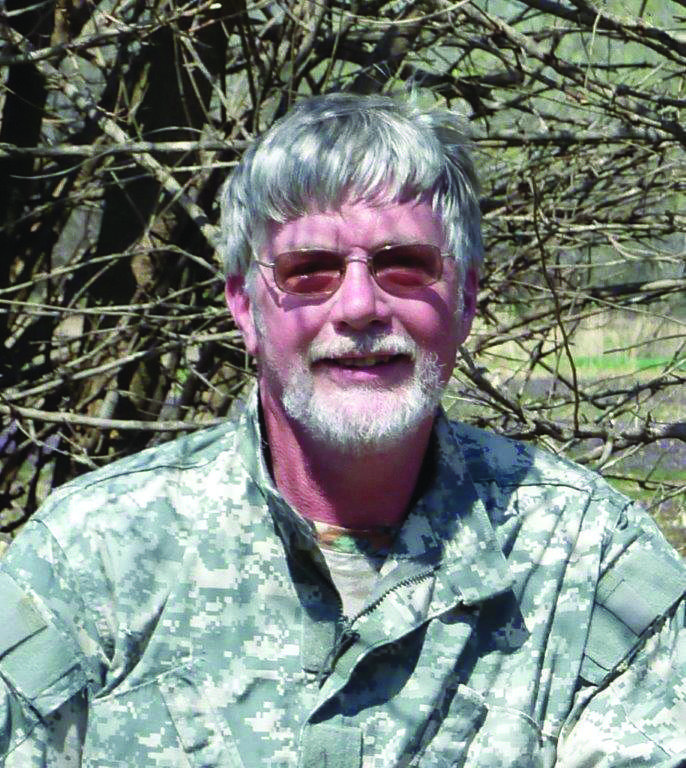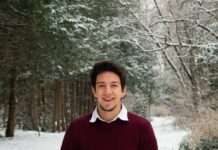The current pandemic recalls one from yesteryear, the Hong Kong Flu, and how it suddenly slammed me into a sickbed.
This virus had begun in Hong Kong in the summer of 1968 and spread to Vietnam and Singapore, then to the Philippines, Australia and Europe. In September it spread through California. By November it was in Kansas.
More than a million people worldwide would die, with 100,000 deaths in the United States. The virus was especially fatal for the elderly. By early December, it covered Kansas; the University in Lawrence, where I was a senior, closed a week before Christmas break was to begin.
At the time I was still healthy. My aunt and uncle wanted to throw an engagement party for me and my fiancée, Susan, at their home in Topeka.
The event brought a lot of family and friends together in pre-Christmas cheer. Out of the blue, as I was chattering away with someone, my throat suddenly was on fire, the pain searing up toward my ears like thunderclaps. In a snap I felt faint.
I had read and heard enough to know this was the big one. I told Susan in a low voice that I’d come down with it, that we should return to Lawrence immediately and that I had to get to bed soon.
We made rapid apologies and left the party. Susan’s three roommates had skedaddled when school was closed. She packed me into a bed at their apartment and in moments hell’s fury broke loose. Fever, cough, aches, chills, raw throat, sweats, head bursting with pain.
By morning my temperature was 104. I remember Susan guiding me, in robe and nightclothes, to the car, and walking me into Watkins Hospital on campus. The sick were in beds everywhere, packed into corridors, hallways, exam rooms, even the lobby.
My stint at the hospital was brief. I was on a gurney looking up at a doctor. He said my temperature was “almost” 105. The hospital had no room, he said. There was no “medicine” for this flu, he said. Go home, he told Susan; put him in an ice bath, try to break the fever. Give him as much aspirin as he can keep down.
She bought bags of ice and made a slush in the tub and ordered me to get in. I did, and don’t recall feeling anything but added misery, that my bones could not hurt any more than they did. I spent the day and night drifting in and out of my mind, and recall Walter Cronkite’s excitement on TV, reporting an Apollo manned lunar orbit. I had sweat-soaked the sheets, and Susan put me in another bed.
Next evening Susan called my mother at the Muehlbach Hotel in Kansas City, where she had set up camp with my sister; they were preparing for a trip to Miami, including the Orange Bowl, where the Jayhawks were to play Penn State. Mother told Susan to bring me to the hotel. On this bitter-cold night the car could not be warm enough for me. The heater was on full throttle high, but I shivered uncontrollably.
Shaking and unshaven – I must have been a sight for the people at hotel reception. In short order I was back in bed; I could hear the quiet chatter of the women in an outer room. They had taken my temperature and I recall my mother saying “too (expletive) high,” and then drifting off.
At some time in the night I was hit with sudden nausea. I heard my sister say, “John just threw up.” And my mother saying, “Good! His fever’s broken.”
I had lived, but barely, I thought. I’m not sure how many days I had been sick with that fever. Two? Three?
A few days later I was still woozy and quite weak, but determined to follow the Kansas multitudes (including family, fiancée and friends) to Miami. My plane at Kansas City was de-iced in a snow storm, roared into the frozen heavens and landed in warm and humid Miami.
As I stepped out of the plane and wobbled down the steps to the tarmac, it struck me that I’d lost my hearing. Before me, all the sights and swirls of Miami in winter, the festive Orange Bowl atmosphere at the airport, the cheerful garb of Penn State and KU fans, the carnival of it all spinning out like a silent movie, in color.
My hearing returned over the next week, bit by bit, and so did the rest of me. We lost the game, 15-14, but I had survived a pandemic virus. As we grapple with a new one, lessons from the old one are revived: I never want to be that sick again.
***





Why do I have virtually no memory of that 1968 pandemic? I DO remember the Democratic Convention in Chicago, the murders of Martin and Bobby, the Mexico City Olympics, Apollo, more troubles in Vietnam. A year of many traumas. This adds to the misery. Nasty virus, John. We best be aware. Thanks for making it plain!